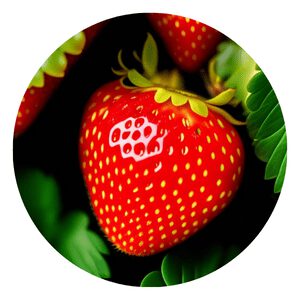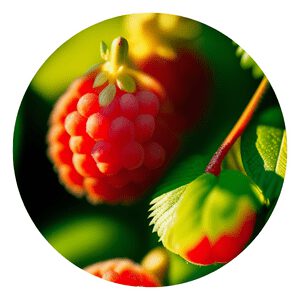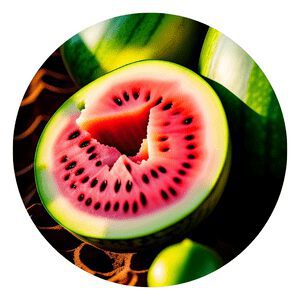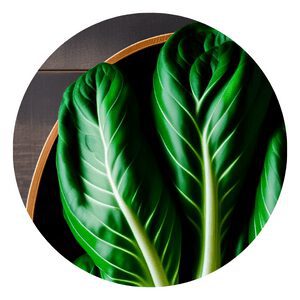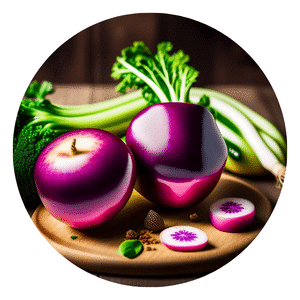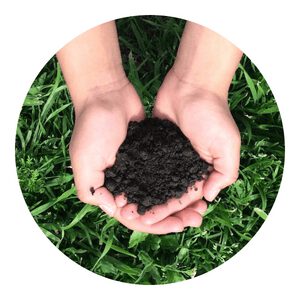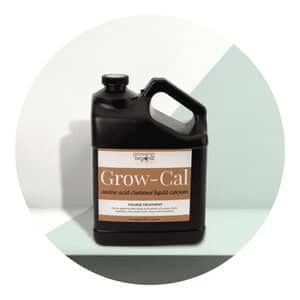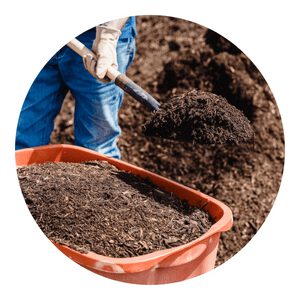Louisiana's Garden of Deliciousness: Grow Your Own Organic Fruits and Veggies!
Living in Louisiana means you’re surrounded by the beauty of nature.
Whether it’s the wetlands, bayous, or nearby beaches, you’re never too far from a natural escape.
As a resident of Louisiana, you can also take advantage of the lush environment to grow your own organic fruits and vegetables right in your backyard.
Organic farming has become increasingly popular over the past few years due to people becoming more aware of what goes into their food.

Louisiana's Garden Menu
The best crops for Louisiana climate
Louisiana’s climate is warm and humid, and the temperatures rarely drop below freezing.
This makes it an ideal environment for growing many types of fruits and vegetables.
Some of the best crops for Louisiana climate include corn, peppers, tomatoes, okra, potatoes, squash, melons, watermelons, peaches and strawberries.
Each crop requires different levels of sunlight, soil acidity and moisture levels to thrive in Louisiana’s climate conditions.
Corn is one of the most popular crops grown in Louisiana due to its versatility as a food source or animal feed grain.
It can be planted early in the spring when temperatures are more temperate and grows quickly with little maintenance needed as it matures.
Peppers are another great crop for this region because they grow easily from seed or plants bought from a local nursery.
They come in a variety of colors like green bell peppers that add color to salads or dishes while providing health benefits like vitamins C & A.
Tomatoes are another vegetable that can be planted during cooler spring months with plenty of sun exposure throughout the day to ensure their ripening process is successful before summer heat arrives.
Okra has become increasingly popular due to its flavor potential when cooked into stews or fried up with other vegetables such as onions and carrots; however they require sandy soils full of organic matter with consistent moisture levels—a challenge in this region—to produce large yields over time successfully.
Factors to Consider Before Planting
Soil: Before planting your organic fruits and vegetables in Louisiana, it is important to consider the soil.
The soil should be rich in nutrients, and free of any pesticides or synthetic fertilizers.
Be sure to test the soil’s pH level and adjust if necessary so that your plants can thrive.
Climate: Louisiana has a humid subtropical climate, with hot summers and mild winters. It is important to choose plants that are suited for this climate – research when certain plants typically bloom and fruit so you can plan accordingly.
Consider what season you want to plant in based on these factors as well as the type of soil available for each season.
Water Source: As a gardener in Louisiana, having access to water is essential for successful organic gardening!
Make sure there is an accessible source of water nearby – either from rainwater collection or an irrigation system – that can provide enough moisture for all of your plants throughout their growing period.
Additionally, consider the temperature of the water since too much heat can shock some sensitive plants!
Pest and disease management
In Louisiana, pest and disease management is an important part of growing organic fruits and vegetables.
It is essential to monitor your garden regularly for signs of insect or fungal infestations.
Common pests in this area include aphids, thrips, caterpillars and slugs.
These can be controlled by handpicking them off the plants or using organic sprays such as neem oil or bacillus thuringiensis (BT).
Fungal diseases such as downy mildew and powdery mildew can be prevented by giving plants adequate airflow, avoiding overhead watering and removing infected leaves quickly.
If needed, a fungicide with copper sulfate can be used to treat fungal infections.
To protect against other diseases caused by bacteria or viruses, it is also important to practice crop rotation and avoid planting susceptible crops in areas where they have been grown previously.
With proper monitoring and management practices in place, it is possible to successfully grow delicious organic fruits and vegetables in Louisiana.
Best Organic Fruits to Grow in Louisiana Backyard
Organic fruit can be grown in a Louisiana backyard with the right climate and soil.
Louisiana’s warm, humid climate provides ideal conditions for growing certain organic fruits.
The state has a variety of soils ranging from sandy to clayey, making it easy to find the perfect kind of soil for your desired organic fruit crop.
Citrus fruits like oranges, lemons, and grapefruits
Oranges, lemons, and grapefruits are all types of citrus fruits that can be grown in Louisiana.
All three require full sun and well-drained soil to grow healthily. Oranges thrive in temperatures between 64-75°F and require plenty of water throughout the summer months.
Lemons need slightly warmer temperatures around 70-85°F while grapefruits prefer cooler climates with temperatures ranging from 50-85°F.
It is important to note that all citrus fruits are prone to pests like aphids, mites, mealybugs, and scale insects so regular monitoring for these is essential for a healthy plant.
When it comes to fertilizing citrus plants, twice a year applications using an organic fertilizer specifically designed for citrus is recommended.
Fertilizer should always be used according to the instructions on the package as too much fertilizer can burn or damage the plant’s roots.
Additionally, these trees should be pruned regularly during their growth cycles in order to maintain good air circulation which helps prevent disease and encourages healthy growth.
Finally, it’s important to keep your trees watered regularly during dry spells or hot weather but avoid overwatering as this could lead to root rot or other problems with your tree’s health.
Grow your own organic bounty in Louisiana's soil, Nature's gift to feed body and soul. Freshly picked tomatoes, plump and red, A healthy meal right from your bed. Healthy food straight from the garden to table, Organic fruits and vegetables are more than able. Preserving nature, nothing is grander Than growing your own organic fruits and vegetables in Louisiana.
Chappy The Gardener
Berries like blueberries, blackberries, and strawberries
Blueberries, blackberries, and strawberries are some of the most popular fruits to grow in Louisiana.
These berries can be planted in a variety of ways, including in-ground or in raised garden beds, containers, or even indoors.
They require full sun and plenty of water to produce large yields and sweet flavors.
The best time to plant them is during late winter or early spring when the soil is still cool so they can establish good root systems before the hot weather arrives.
Blueberries should be mulched with an acidic material such as pine needles or sawdust as this helps keep the moisture levels up during dry spells.
Blackberry and strawberry plants will benefit from occasional pruning to remove dead wood and encourage new growth each season.
With regular fertilization and consistent watering these delicious berries will give you bountiful harvests year after year!
Melons like cantaloupes and watermelons
Cantaloupes and watermelons are two of the most popular melon varieties available to grow in Louisiana.
Not only are they delicious, but they are also packed with nutrients like vitamins A and C, as well as dietary fiber.
Both types of melons need plenty of sun and heat to thrive, so it is important to select a sunny spot in your garden for them.
Cantaloupes require around 80-90 days from planting to harvest while watermelons require around 90-100 days.
The soil should be enriched with compost or manure before planting these melons to ensure they receive the best nutrient sources possible during their growth cycle.
When growing both cantaloupes and watermelons, annual applications of fertilizer may also help promote healthy growth throughout the season.
Additionally, it is recommended that you use mulch between plants which helps retain moisture in the soil and reduce weeds at the same time.
If you want a successful crop of either type of melon, regular watering is essential throughout their growth process!
Figs, persimmons, and pomegranates
Figs are a popular fruit found in many Louisiana gardens. They’re easy to grow and require minimal maintenance.
Figs thrive best in warmer climates, but can be acclimated to the state’s climate with some care.
Fruits appear on branches once or twice a year, depending on variety and region.
The most common fig varieties for Louisiana gardeners include Brown Turkey and Celeste.
Persimmons are another popular fruit that grows easily throughout the state of Louisiana.
The most common varieties grown are the American persimmon (Diospyros virginiana) and the Oriental persimmon (Diospyros kaki).
Both types prefer full sun locations with plenty of moisture in rich soil, though they will tolerate some shade as well.
While slightly more challenging to grow than figs, persimmons produce an abundance of sweet fruits that can be eaten fresh or used for baking desserts or jams/jellies.
Pomegranates are a great addition to any Louisiana organic garden due to their ease of growth and hardiness against cold weather conditions.
Pomegranates love full sun locations with well-drained soil enriched by organic matter such as compost or aged manure; however they also tolerate some shade as well as drought conditions once established.
Most pomegranate varieties will produce an abundance of large red fruits filled with tart seeds that can be enjoyed fresh or used in cooking recipes such as sauces and marinades.
Best Organic Vegetables to Grow in Louisiana Backyard
Organic gardening in Louisiana is an increasingly popular trend among gardeners, as it allows you to grow fruits and vegetables without the use of toxic pesticides or other chemicals.
Some of the best organic fruits and vegetables to grow in a Louisiana backyard include tomatoes, peppers, squash, eggplant, okra, sweet potatoes, watermelon, cantaloupe and collard greens.
Leafy greens like kale, spinach, and lettuce
Kale is a great leafy green vegetable to grow in Louisiana due to its ability to tolerate warmer temperatures and humidity.
Kale is also a prolific producer for several weeks throughout the summer, making it an ideal choice for gardeners of all levels.
Kale is packed with nutrients, including vitamins A, C, E, and K; calcium; iron; and fiber. It can be eaten raw or cooked in salads, stir-fries, soups, and casseroles.
Spinach is another popular leafy green vegetable that can easily be grown in Louisiana’s climate.
It prefers cooler temperatures so it should be planted early in the spring before the weather gets too hot.
Spinach is high in vitamins A and C as well as magnesium and iron. It has a mild flavor that makes it ideal for salads or adding to soups or sandwiches for extra nutrition.
Finally, there’s lettuce which grows best during cool weather but will still do well through the summer months if planted early enough or if you choose heat-tolerant varieties like butterhead lettuce or romaine.
The different types of lettuce have various shapes and textures that make them perfect for salads or wraps.
Lettuce contains essential vitamins like folate as well as minerals such as potassium and calcium that are important for overall health.
Cruciferous vegetables like broccoli and cauliflower
Broccoli and cauliflower are two of the most widely known cruciferous vegetables, which also include cabbage, kale, Brussels sprouts, and bok choy.
These vegetables are extremely nutrient-dense and offer a wealth of health benefits.
Eating them regularly may help reduce the risk of certain types of cancer due to their high content of antioxidants and phytochemicals.
They contain vitamins A, C, K, folate as well as dietary fiber along with minerals like calcium and magnesium.
Broccoli is especially rich in sulforaphane which is a powerful antioxidant that helps protect cells from damage caused by free radicals.
In addition to being packed with essential nutrients for good health, broccoli and cauliflower are incredibly versatile in the kitchen; they can be eaten raw or cooked in a variety of ways such as steaming, roasting or grilling.
Both vegetables add a delicious crunch when added to salads and stir fries while their mild flavor pairs wonderfully with other flavors like garlic or lemon juice.
Furthermore these cruciferous veggies can be preserved through freezing or pickling so they can be enjoyed year round regardless if it’s growing season or not!
Root vegetables like carrots, beets, and potatoes
Carrots, beets, and potatoes are a few of the more popular root vegetables.
Carrots are an excellent source of Vitamin A and fiber.
They can either be eaten cooked or raw.
Beets contain vitamins A, B-complex and C, as well as minerals like iron, magnesium and potassium.
Roasting them brings out their natural sweetness.
Potatoes are very versatile and can be boiled, baked or mashed in a variety of dishes.
They also provide a good source of complex carbohydrates for energy.
All three vegetables grow easily in Louisiana soil with proper care and maintenance throughout the growing season.
When planting these root vegetables it is important to make sure they have enough space to grow properly without overcrowding each other in the garden bed or planter box.
Planting organic varieties will also ensure that no pesticides have been used on your crop leading to higher quality produce for you to enjoy!
Tomatoes, peppers, and eggplants
Tomatoes, peppers, and eggplants are all excellent fruits and vegetables to grow in Louisiana.
Tomatoes are easy to grow in the state’s warm climate of long, hot summers and mild winters.
They thrive best when planted in full sun with plenty of water.
Peppers also require lots of heat and can be grown from seed or transplants. They need well-drained soil with regular watering.
Eggplants prefer slightly cooler temperatures than tomatoes or peppers but still require full sun exposure for the majority of the day.
It’s best to use a quality organic fertilizer when planting them, as this will promote strong growth throughout their growing season.
While these three fruits and vegetables may require some extra care due to the state’s warm climate, they can still yield delicious results when properly cared for!
Tips for Maintaining an Organic Backyard Garden in Louisiana
One of the most important tips for maintaining an organic backyard garden in Louisiana is to adjust your soil.
Louisiana’s climate can be humid and hot, which often encourages a buildup of salts and minerals that can prevent plants from growing properly.
Consider adding compost or soil amendments such as peat moss, manure, or shredded leaves to make sure your soil has adequate nutrition for your plants.
It’s also important to check the pH level of your soil regularly so you know what kind of amendments to add in order to achieve the optimal pH balance.
Additionally, remember that it’s always better to mulch rather than till when preparing a garden bed – this helps keep weeds from growing and keeps moisture in the ground so you don’t have to water constantly.
It’s also important to choose plants that are well-suited for Louisiana’s climate in order for them grow successfully.
Research what type of vegetables and fruits will thrive best in this region before planting them; consider tomatoes, peppers, beans, squash, melons, okra and sweet potatoes all make good choices for backyard gardens here.
When it comes time for harvesting the produce from your garden make sure you pick ripe fruit from trees instead of pulling it off – this reduces stress on branches and ensures maximum flavor potential!
Finally remember that pests can be an issue so check frequently and use natural pest control methods like diatomaceous earth or Bacillus thuringiensis sprays if needed.
Watering and irrigation techniques
Drip irrigation is a popular watering technique that slowly applies water to your plants through small holes or emitters.
It’s great for keeping the soil consistently moist and delivering water directly to the plant’s roots.
This method also helps conserve water, as it prevents it from evaporating too quickly in hot weather.
When using drip irrigation, you can control the amount of water you want to use by adjusting the pressure valve.
You can also install an automatic timer to make sure your plants are receiving enough nourishment at regular intervals.
Sprinklers offer another convenient way of watering your garden and providing adequate coverage across larger areas with fewer emitters than drip irrigation does.
However, sprinklers tend to be less efficient when it comes to conserving water since some might evaporate before reaching your plants’ roots due to their high-pressure spray patterns.
To ensure maximum efficiency, consider setting up multiple zones for different sections of your garden, so you don’t have overlapping coverage and can adjust each zone’s settings independently from one another depending on its needs and conditions.
Finally, hand-watering is always an option if you don’t want any automated systems in place or feel like taking a more hands-on approach with tending to your plants individually.
While this method might take longer than other solutions at first, it allows you more control over where exactly each plant receives its nourishment while giving you time up close and personal with them in the process!
Soil amendments and fertilizers
Soil amendments and fertilizers are essential components to growing your own organic fruits and vegetables in Louisiana.
The right soil amendment and fertilizer will help bring the soil pH to an optimal level for nutrient uptake, improve water retention, reduce compaction and create a healthy environment for beneficial microbes.
Amendments such as compost, manure or peat moss can increase the amount of organic material in the soil, improving texture and drainage.
Fertilizers provide essential nutrients like nitrogen, phosphorous and potassium that plants need to grow.
Organic fertilizers derived from plant or animal sources help replenish these nutrients without introducing harsh chemicals into the soil.
It’s important to choose a fertilizer that is specifically formulated for fruit or vegetable gardens depending on what type of crop you plan on growing.
Finally, it’s important to apply amendments and fertilizers at recommended rates based on the needs of your garden crops – too little won’t be effective while too much will create nutrient runoff which can harm our local waterways.
With proper application of both amendments and fertilizer you’ll be well on your way to enjoying delicious organic produce all season long!
Companion planting for pest control
Companion planting for pest control is a natural way to reduce pests and disease in the garden.
It involves selecting specific plants that create an ideal environment for the desired crops and repel unwanted insects or animals.
Common companion planting pairs include tomatoes with basil, marigolds with squash, and carrots with onions.
Planting these combinations together helps to reduce insect damage while also providing beneficial effects such as increased pollination or soil nutrition.
Additionally, certain plants can be used as “trap crops” to attract pests away from other nearby plants.
For example, radishes can be planted near cucumbers to draw away cucumber beetles which could otherwise cause significant damage.
Other benefits of companion planting include helping to improve soil fertility, suppressing weeds, increasing water retention in the soil, and allowing more efficient use of light and space in a garden bed.
Companion planting takes some experimentation but can provide long-term solutions for controlling pests in an organic setting.
Harvesting and storing tips
Harvesting your fruits and vegetables correctly is the key to enjoying the full taste of your crop.
The best time to harvest most produce is in the morning, when they are still cool from the night air.
For vegetables like tomatoes and peppers, wait until they have reached their mature size before harvesting.
If you find that some of your crops have been damaged by pests or other issues, it’s best to remove them immediately so as not to contaminate the rest of your produce.
Storing tips vary depending on what type of fruits and vegetables you are growing in Louisiana: root vegetables such as potatoes should be stored in a cool dark environment with good air circulation; while tomatoes can be safely stored at room temperature for up to two weeks.
When storing leafy greens, make sure to wrap them loosely in plastic bags or containers that help trap moisture and prevent wilting.
To maximize shelf life, keep all organic fruits and veggies away from sources of heat or direct sunlight.
In conclusion, growing your own organic fruits and vegetables in Louisiana is not only rewarding but also very possible.
With the right soil and a bit of hard work, you can have a thriving vegetable patch or fruit garden in no time.
You’ll have access to fresh produce that is free of pesticides and other chemicals all year round.
Not only will you be able to enjoy the fruits and vegetables that you grow, they are also excellent for sharing with family, friends, and neighbors.
Click To Grow
Helps Us Grow – Share If You Like







